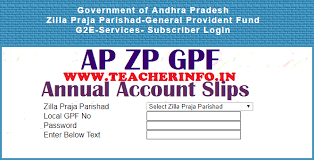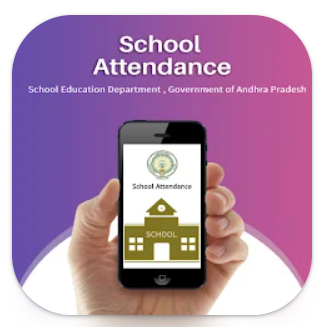HON’BLE SRI JUSTICE D.V.S.S.SOMAYAJULU
WRIT PETITION No.10474 and 10034 of 2021
COMMON ORDER:
In both these Writ Petitions the challenge is to G.O.Ms.No.70 School Education (Exams) Department, dated 05.11.2018. The prayer in these Writ Petitions is to set aside the G.O.Ms.No.70, dated 05.11.2018, which is issued 10 days after the initial G.O.Ms.No.67 School Education (Exams) Department, dated 26.10.2018
This Court for the sake of convenience, at this stage itself is reproducing the first page of the G.O.Ms.No.70, dated 05.11.2018, hereunder to highlight the area of challenge:
The Andhra Pradesh Teacher Recruitment Test(TRT) for the posts of School Assistants(SAs), Language Pandits (LPS), Physical Education Teachers(PETS), Music Teachers, Craft Teachers and Art& Drawing Teachers and Teacher Eligibility Test cum Teacher Recruitment Test (TETcumTRT) for the posts of Secondary Grade Teachers(SGTS) Scheme of Selection Rules, 2018- Amendment- Orders - Issued.
SCHOOL EDUCATION (EXAMS) DEPARTMENT
G.O.Ms.No. 70 Dated: 05-11-2018
Read the following: 1. G. O. Ms. No. 67, School Education (Exams) Department, dt:26.10.2018. 2. From the Commissioner of School Education, Andhra Pradesh Lr.Rc.No.ESE02-20021/6/2018- RECTMT-CSE, Dt: 27.10.2018.
ORDER:-
In the Government Order 1" read above, The Andhra Pradesh Teacher Recruitment Test(TRT) for the posts of School Assistants(SAs), Language Pandits (LPs), Physical Education Teachers(PETS), Music Teachers, Craft Teachers and Art& Drawing Teachers and Teacher Eligibility Test cum Teacher Recruitment Test (TET-cum-TRT) for the posts of Secondary Grade Teachers (SGTs)-Scheme of Selection Rules, 2018 were issued.
2. In the circumstances stated by the Commissioner of School Education, AP, Ibrahimpatnam in the letter 2nd read above, Government after careful examination of the matter, Government hereby issue the following amendments to the aforesaid Rules issued in G. O. Ms. No. 67, School Education (Exams) Department, dt: 26.10.2018.
AMENDMENTS
1. Para 4(2)(i)(f) Para shall be substituted as follows.
Existing Para:
Must possess a Bachelor's Degree with Telugu as the main subject or one of the three equal optional subjects or Bachelor's Degree in Oriental Language in Telugu (B.O.L) or its equivalent and B.Ed with Telugu as methodology Subject or Telugu Pandit Training or its equivalent.
Substituted with
Must possess a Bachelor's Degree with Telugu as the main subject or one of the three equal optional subjects or Bachelor's Degree in Oriental Language in Telugu (B.O.L) or its equivalent or a Post Graduate Degree in Telugu and B.Ed with Telugu as methodology Subject or Telugu Pandit Training or its equivalent. (UNDERLINED RED COLORED portion is the area of dispute)
This Court has heard Sri S.Satyanarayana Rao, learned counsel for the petitioner in W.P.No.10474 of 2021 and Sri P.V.Krishnaiah in W.P.No.10034 of 2021, learned Additional Advocate General Sri P.Sudhakar Reddy for the respondentState and Sri A. Rajendra Babu, learned counsel for the implead petitioners/respondents 3 to 20 in W.P.No.10474 of 2021 and for implead petitioners/respondents 3 to 18 in W.P.No.10034 of 2021; Sri Bobbili Srinivas, learned counsel for the implead petitioners / respondents 21 to 29 in W.P.No.10474 of 2021 and for the implead petitioners/respondents 19 to 24 in W.P.No.10034 of 2021.
Both the learned counsel for petitioners very vehemently argued with great passion that the initial G.O.Ms.No.67, dated 26.10.2018 is issued under the powers delegated under Article 309 of the Constitution of India and that the same cannot be amended by way of executive instructions. It is also argued that if the State wishes to prescribe additional qualifications it had to amend the rules that were prevailing as on the date of the notification. It is argued that these are statutory rules which can only be changed by way of amendment only and new qualifications cannot be introduced by way of Executive instructions. This is the substratum of the challenge. In addition, it is also argued that the rules of the game cannot be changed after the game has begun. Both the learned counsel submits that new qualifications cannot be prescribed or introduced for selection of candidates after the notification is issued. Last but not the least it is also argued that G.O.Ms.No.70 was the subject matter of the challenge in W.P.No.9118; 9164; 11961; 17367 and 17864 of 2020, which was ultimately allowed on 25.03.2021. The earlier order passed in O.A.No.2516 of 2018 was also brought to the notice of this Court. It is, therefore, submitted that in view of this legal position of law the petitioners are entitled to the relief. Therefore, the prayer is made in both these writ petitions for declaring the action of the respondents in issuing G.O.Ms.No.70, dated 05.11.2018 as arbitrary, illegal and ultra vires and to set aside the same. A consequential direction prayed for is to direct the respondents to complete the selection process for appointment to the post of School Assistant (Telugu) and Language Pandit (Telugu)
Sri P.V. Krishnaiah also argues that by prescribing higher qualifications greater higher competition is introduced after the Notification has been issued.
In reply to this, the essential argument advanced by the learned Additional Advocate General is that the State has ample power to issue a clarificatory or supplementary G.O. He points out that the G.O. was issued on 05.11.2018 only to fill up an obvious gap in the regulations. He points out that the NCTE regulations (which are mandatory and have to be followed by everyone), prescribed a Post Graduate Degree also as a qualification. Therefore, in order to bring in uniformity and to improve the standards of education the State Government decided to follow the NCTE regulations. It is submitted that the subsequent G.O. dated 05.11.2018 is only issued to fill up the gap / omission. He submits that this is only supplementing the existing regulations and it does not amount to changing the rules of the game. It is also submitted that the rules of a game have not been changed at all. Further submissions are also made that these are matters which are best left to the experts and the experts have decided to fix the educational qualifications. Therefore, a submission is made that the Courts should lightly interfere in this matter
On behalf of the implead petitioners Sri A.Rajendra Babu and others have argued in line with supporting the case advanced by the learned Additional Advocate General. It is pointed out that merely by including Post Graduates and permitting Post Graduate Degree holders to participate in the selection, the petitioners are not deprived of any rights and that they could participate in the process. It is also argued that the implead petitioners-present respondents participated in the process by virtue of the interim orders granted in O.A.No.2516 of 2018 and that, therefore, the procedure should be allowed to go to its logical conclusion. There is a review petition pending i.e., I.A.No.1 of 2020 in W.P.No.19757 of 2020 and as per the orders passed in W.P.No.9118 of 2020 and Batch no further orders can be granted as the learned single Judge has already hold that since I.A.No.1 of 2020 in W.P.No.19757 of 2020 is pending no directions can be issued. Learned counsel submits that all these facts are suppressed in the present Writ Petitions and that on the ground of suppression of facts the Writ Petition can be dismissed
COURT:
As mentioned earlier the first Notification was issued on 26.10.2018. The second Notification, which is the subject matter of the challenge, is issued on 05.11.2018. In this second Notification, Post Graduate Degree in Telugu is prescribed as an additional qualification. The stand taken by he petitioners is that this is only possible by amending the rules framed under Article 309 of the Constitution of India. While the respondent-State urges that it has the power to issue the supplemental notifications to supplement an obvious error.
This Court notices that on 19.11.2014, G.O.Ms.No.38 was issued for the purpose of framing the rules for the A.P.Teacher Eligibility Test. In this G.O.Ms.No.38, dated 19.11.2014 it is clearly specified that the norms and conditions of the eligibility criteria provided by NCTE are being followed. For a School Assistant in Telugu a Post Graduate Degree in Telugu is prescribed. Similarly, for the Language Pandit (Telugu) also Post Graduate Degree in Telugu is one of the qualifications. There are the two tests for which the petitioners are agitating. This is the recruitment G.O. prior to the impugned GOs under challenge. This Court also notices that G.O.Ms.No.67, dated 26.10.2018 clearly states that the rules are framed under Article 309 of the Constitution of India and The Right of Children to Free and Compulsory Education Act, 2009 (in short “the Education Act”) by duly incorporating the norms and conditions of eligibility prescribed by the NCTE. This fact is clearly asserted in paragraph 19 of the counter affidavit filed by the respondent-State. This aspect of incorporating the Post Graduate Degree in Telugu in line with the NCTE regulations etc., is not denied by way of filing any rejoinder etc. Similarly, on 04.05.2018, G.O.Ms.No.25 was issued. In this case also for the language teachers, Post-Graduation in the language concerned and Language Pandit Certificate etc., was prescribed. This G.O. was also issued pursuant to the NCTE Notification dated 23.08.2010 and the NCTE guidelines. Learned Additional Advocate General also relied upon the judgment reported in State of Uttar Pradesh and Others v Shiv Kumar Pathak and Others1 to argue that the State Government was under the obligation to act as per the Notifications of the NCTE and not to prescribe anything contrary. It is also argued that the qualifications prescribed by the NCTE are binding. This Court also notices that the NCTE has been formed under the Central enactment called NCTE Act. The power to fix the minimum standards of education for school teachers is granted expressly under Section 12 (A) of the NCTE Act. These statutory provisions viz., Section 12 which deals with the functions of the NCTE and Section 12 (a) of the NCTE Act were considered by the Hon’ble Supreme Court of India in the judgment referred to above. Section 23 of the Education Act was also considered by the Hon’ble Supreme Court of India in the judgment referred to above. Thereafter, the Hon’ble Supreme Court of India held that the NCTE acting as an academic authority under Section 23 of the Education Act as well as Section 12 and 12 (A) of the NCTE Act was empowered to issue the Notifications. It is held that these Notifications are binding on the State. The Council’s power to prescribe the educational qualification for Teachers (Section 12) and to maintain the standards (Section 12-A) is very clear. The panIndia application of the Act and its purpose are clear from the aim and objects also (Act 73 of 1993).








